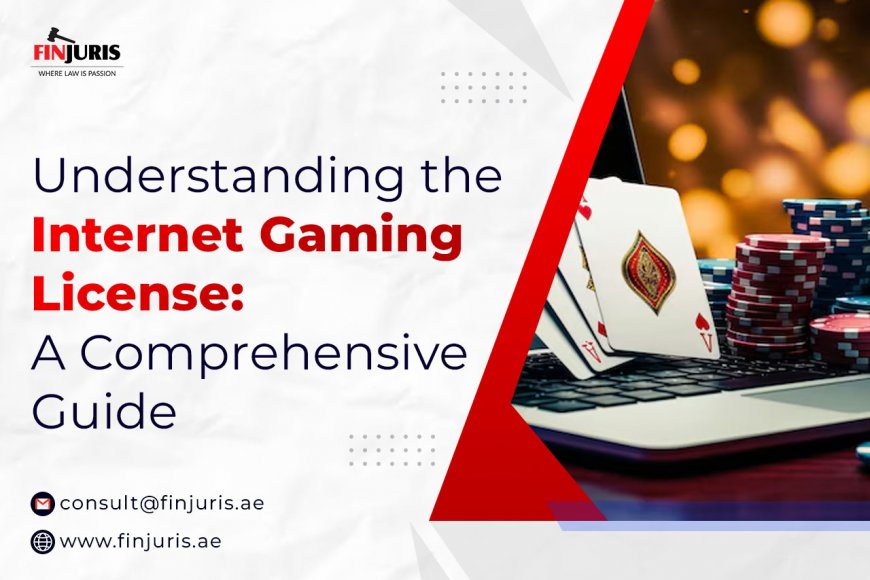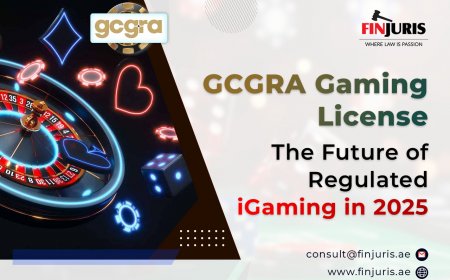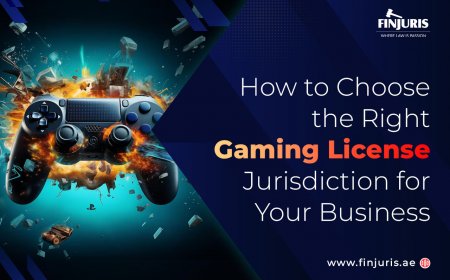Understanding the Internet Gaming License: A Comprehensive Guide
Discover everything you need to know about the Internet Gaming License in our comprehensive guide. Learn its importance, requirements, and benefits for online gaming.

As the online gambling industry grows, obtaining an Internet gaming license has become increasingly important for operators looking to build a respectable and legally compliant firm. An Internet gaming license not only legitimizes a gaming activity, but it also builds trust among players and ensures regulatory compliance.
What is an Internet Gaming License?
An Internet gaming license is a legal authorization from a governing or regulatory body that allows operators to provide online gaming services such as casino games, poker, sports betting, and other types of gambling. This license is required to ensure that gaming activities are performed fairly and responsibly, protecting both players and operators. The prerequisites for getting an Internet gaming license varied per country, reflecting various regulatory methods and standards. Some regions have well-established frameworks, but others may have more adaptable or new legislation.
Why is an Internet Gaming License Necessary?
- Legal Compliance: One of the key reasons for obtaining an Internet gambling license is to ensure legal compliance. Each jurisdiction has its own regulations concerning online gambling, and operating without a license can result in serious consequences such as fines, legal action, and the closure of activities. A license assures that your company follows these rules, which may include issues like as responsible gaming operations, taxation, and player protection.
- Player Trust: Establishing trust with players is critical for any online gaming business. Customers are more likely to trust a regulated gaming platform with their personal and financial information. This trust is essential for developing long-term connections with players, resulting in increased engagement and retention rates. Licensed platforms are frequently perceived as safer and more dependable, providing a competitive advantage in a congested market.
- Access to Markets: Many jurisdictions require gaming licenses for operators to enter certain markets. Obtaining the necessary license can provide opportunity to reach a larger audience and improve revenue. Furthermore, being licensed in a renowned jurisdiction can boost your brand's legitimacy, making it easier to form relationships with payment processors, software suppliers, and affiliates.
- Consumer Protection: Licensed operators are required to adhere to tight criteria for player protection, fair play, and responsible gambling. This commitment contributes to the general integrity of the online gaming business. Licensed platforms can help guarantee that players gamble safely and responsibly by putting in place measures such as self-exclusion programs and responsible gaming tools.
- Enhanced Reputation: Operating under a valid Internet gaming license improves your brand's reputation in the industry. A great reputation can help you gain visibility, attract additional players, and form connections with other businesses in the gaming ecosystem. It establishes your brand as a trustworthy market player, which is especially crucial in an industry where reputation is critical to success.
The Licensing Process
The procedure of obtaining an Internet gambling license varies greatly depending on the jurisdiction. However, common steps usually include:
- Select a Jurisdiction: Investigate the numerous jurisdictions that offer gaming licenses and choose one that is compatible with your business objectives. Popular choices include:
- Malta: With its strong regulatory structure and low tax rates, Malta is a favored choice for many online gaming firms. The Malta gambling Authority (MGA) provides licenses for a variety of gambling activities.
- Gibraltar: Another well-known country, Gibraltar offers a good environment for online gambling companies, particularly in terms of tax breaks and regulatory support.
Curacao: With a more streamlined application process, Curacao is frequently regarded as a cost-effective choice for startups and small businesses. However, its regulatory norms may be less stringent than those in other jurisdictions.
United Kingdom: The UK Gambling Commission (UKGC) has stringent licensing standards, making it a reputable gaming body. Obtaining a UKGC license might boost your credibility, but it may require a lengthy and comprehensive application process. - Prepare Documentation: Once you've decided on a jurisdiction, acquire the relevant documentation to support your application. Common requirements include:
Business Strategy: A detailed strategy that describes your gaming company, target market, and financial projections. This document should show that you understand the industry and have a successful approach.
Financial Statements: Proof of financial soundness is frequently requested. This could include bank statements, income statements, and balance sheets.
Software and Technology Details: Information on the software and technology utilized in your gaming platform, such as game descriptions, security measures, and payment mechanisms.Background information includes personal and professional details on key stakeholders including as owners, directors, and senior management. This could involve criminal background checks and financial backgrounds. - Application Submission: After completing the necessary papers, submit your application to the regulatory authority of your choice, along with the appropriate payments. Each jurisdiction has its own cost system, which can differ depending on the sort of license being requested.Prepare for a waiting period, as the review process can take many weeks or months. During this period, regulators will review your application and determine your eligibility to operate in their jurisdiction.
- Compliance Checks: Regulators frequently undertake detailed background checks and compliance evaluations as part of the licensing procedure. They will evaluate your business procedures, financial stability, and dedication to responsible gaming. This may involve:
Interviews: You may be asked to conduct interviews with regulatory officials to discuss your business strategy, operations, and compliance methods.
Site inspections: Some countries may conduct site inspections to check the information supplied in your application and confirm that your operations are compliant with regulatory requirements. - Receive the License: Once your application is granted, you will be issued an Internet gaming license, allowing you to legally operate inside the jurisdiction. However, getting the license is only the beginning. To keep your license, you must remain in compliance with all regulatory standards.
Obtaining an Internet gaming license is a critical step for any company hoping to succeed in the online gaming market. It assures legal compliance, builds player trust, and opens up new markets and opportunities. As the landscape changes, staying current on licensing requirements and ensuring compliance will be critical to long-term success. Whether you're beginning a new business or growing an existing one, investing in the correct licensing is a critical foundation for your online gaming venture.
Understanding the complexities of the licensing process and adhering to best practices for compliance allows operators to position themselves for growth and sustainability in this dynamic and competitive market.
What's Your Reaction?




















